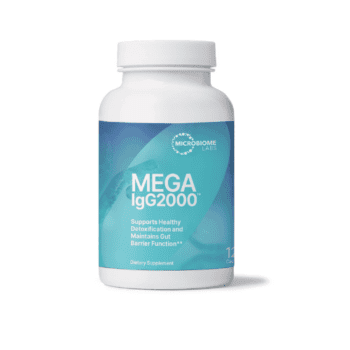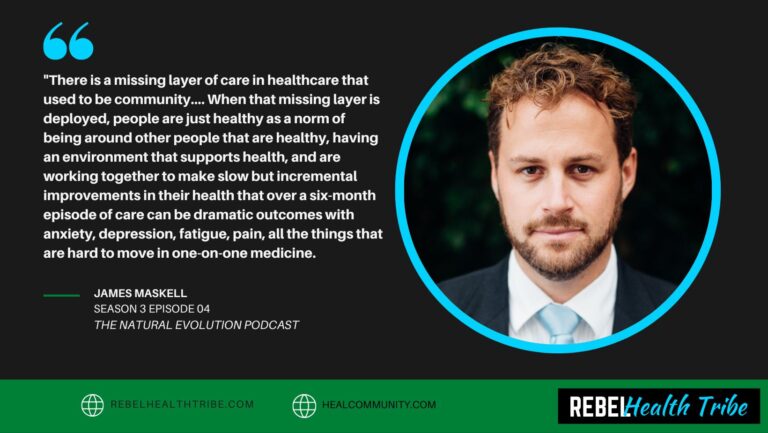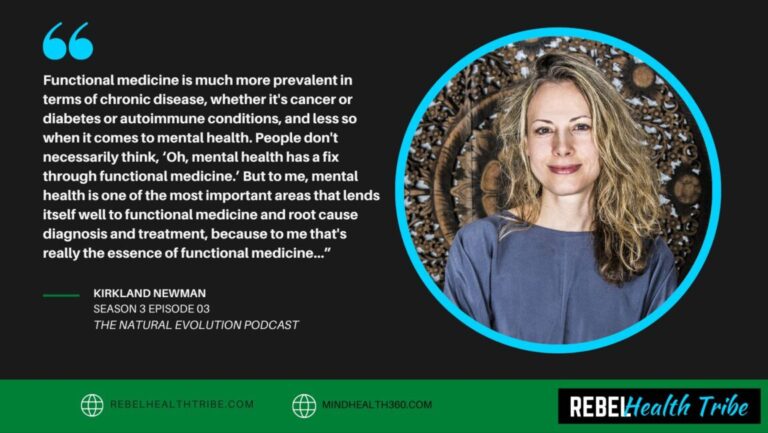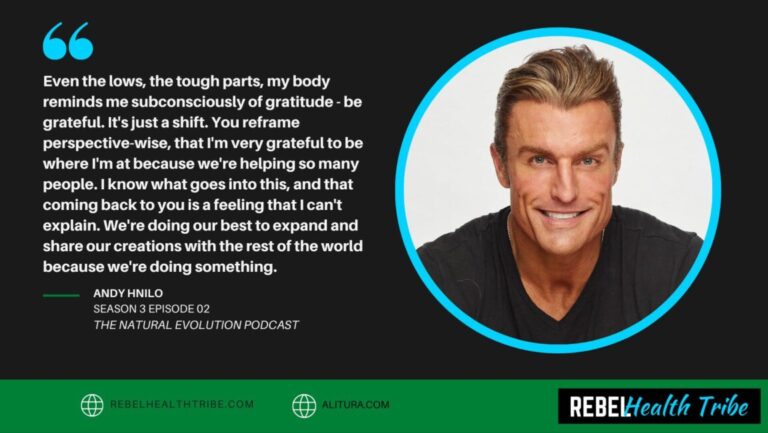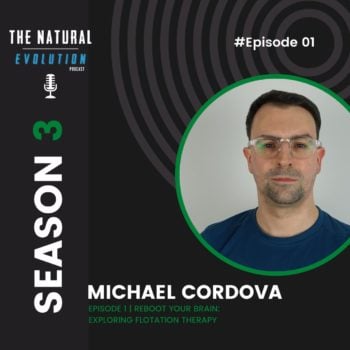
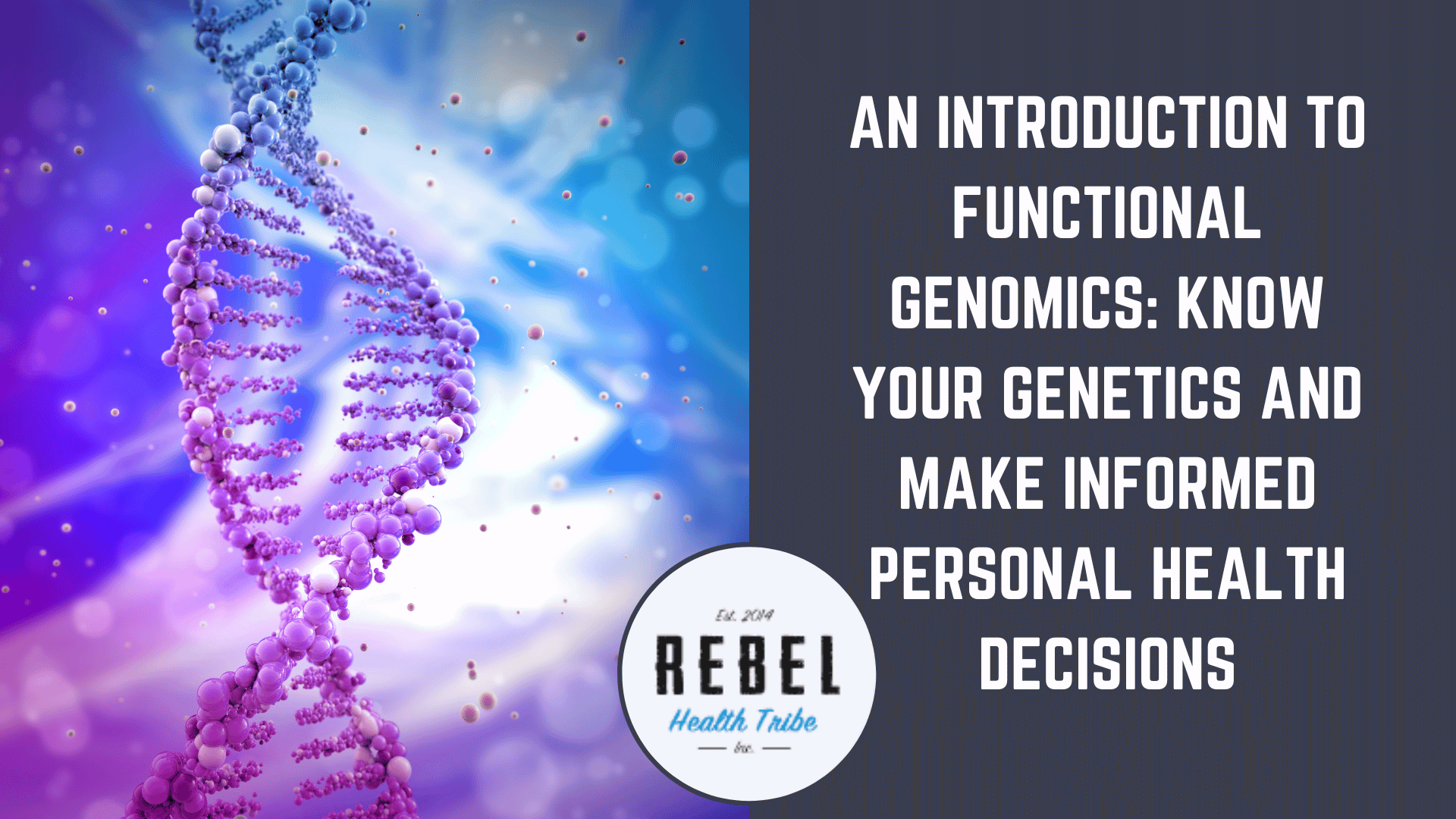
More Posts from
Foundations & Optimization
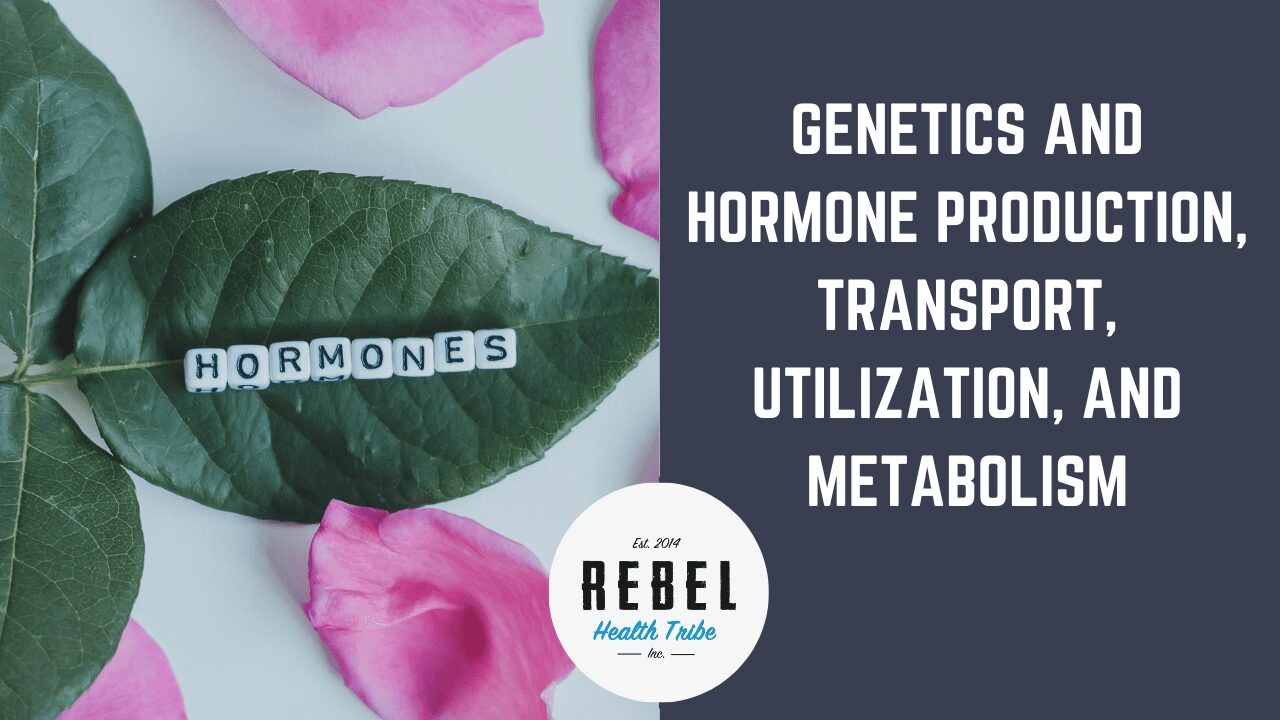
Genetics and Hormone Production, Transport, Utilization, and Metabolism
Our genetics play a larger role in our hormones than most people
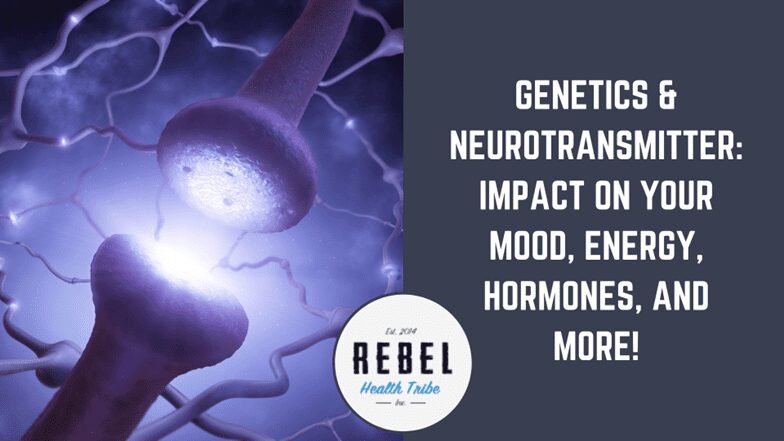
Genetics & Neurotransmitters: Impact on Your Mood, Energy, Hormones, and More!
Have you wondered why an antidepressant didn’t work for you? Have you
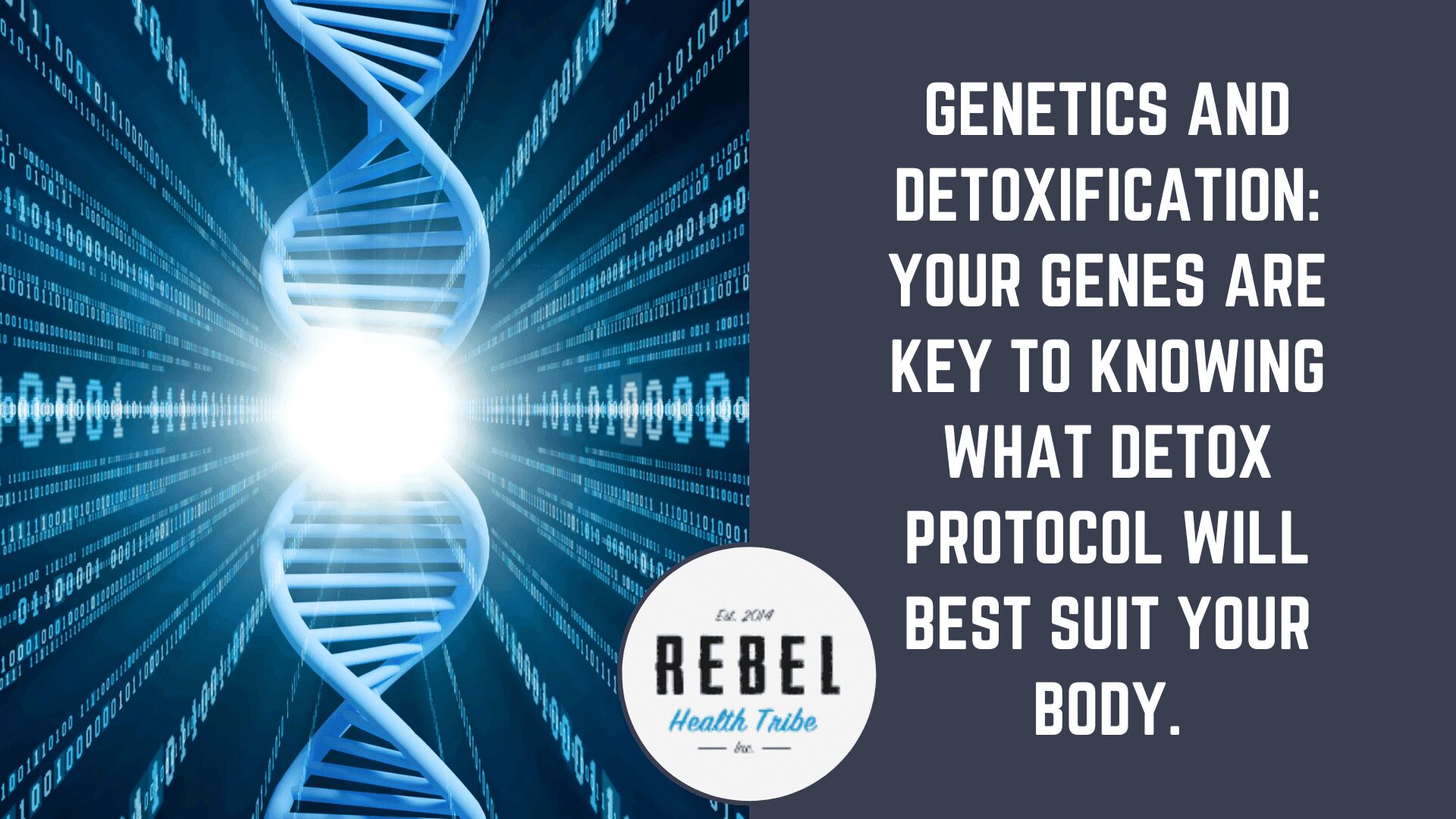
Genetics and Detoxification: Your genes are key to knowing what detox protocol will best suit your body.
https://vimeo.com/821487331 If you’ve ever bought a detox kit off a shelf

RHT Health Foundations &
Optimization Guide
Our Top Recommendations in One Simple Guide -
Your Starting Point for Optimal Health!
- 12+ years of research and experience distilled down into one simple guide
- Easy, practical, and actionable steps you can take right away
- The most-repeated recommendations from our 100+ guest experts over the years
- Something for everyone - regardless of where you are on your health journey
The desire to know how your genes are affecting your health is rapidly growing. Many people are getting genetic testing done, but aren’t getting the answers they were hoping for. This is because most interpretation services merely provide a canned response for each of the genes they test for.
More often than not, the canned response for one genetic variant will directly contradict the canned response that was generated for another genetic variant in the same report! This can cause ‘analysis paralysis’ and leave you even more confused about how to take charge of your health! I’ve had many clients come to me with a print out of a genetic report they got from somewhere else, completely confused, overwhelmed, and wanting my help to make sense of it.
Additionally, many interpretation services only look at a handful of genetic variants. This is like trying to figure out what a puzzle looks like based on a few pieces. No gene works in isolation. There are many upstream and downstream factors that affect the outcome of what a gene does, as well as other genes that can enhance or interfere with that gene’s total ‘output.’ If we just focus on one gene and what to do about it, that’s “treating the SNP” and will not be effective.
If you’ve ever wanted a nutritional or detox protocol that was tailored to your specific genome and biochemistry, look no further!
My name is Jaclyn Downs and I am a functional nutrigenomic consultant. What that means is that I take a look at your genome (not just a few genes) and, coupling that with a detailed case history and some lab test results (if available), I am able to provide you with a custom-tailored protocol to help you achieve your health goals in a streamlined manner.
What is Epigenetics and Genomic Testing?
Epigenetics is the study of how your environment, diet, lifestyle, and toxin exposure affect the functioning of your DNA. We are born with the genes we will have for our entire life, but how we live our lives and what we are exposed to can majorly impact the expression of our genes.

This, incidentally, is another reason why those automated genomic reports might fail you; they don’t take into account your current diet and lifestyle, or past exposures and experiences that can affect whether or not certain genes have been expressed. And they do not know your current health concerns. These types of reports are based on your genes, not epigenetics.
Genomic testing differs from genetic testing in that genetic testing tests for single gene mutations, such as testing for specific genetic anomalies (like muscular dystrophy or Tay Sachs), or for specific ‘cancer genes’, Alzheimer genes, or MTHFR. Genomic testing looks at your whole genome (or a really large portion of it) and how the genes intersect and interact with each other within biochemical pathways.
Functional genomic analysts know which nutritional cofactors are needed to support genetic activity. Genes contain the blueprint for making an enzyme, and enzymes require specific nutrients in order to do their jobs, just as specific fuels are needed to run different machines. Enzymes are what make every single reaction in our bodies take place, from how each nutrient is transported or metabolized, right down to what type of earwax your body produces.
What is the Value of Genomic Testing?
Knowing this information is key to knowing how to support or help to compensate for genetic variants, also referred to as Single Nucleotide Polymorphisms (SNPs, pronounced ‘snips’). There are nutrients and phytochemicals that have been shown to speed up or slow down enzymatic activity, so if you have a gene that is upregulated (working faster than the normal type), these substances can help to compensate for it and inhibit that enzyme’s activity, and vice versa for genetic variants that cause downregulation in enzymatic activity.
Many people have spent hundreds, even tens of thousands of dollars on various tests and modalities in an attempt to get to the root causes of their health challenges. And with most of these tests, additional follow up testing needs to be done. With genetic testing, you only need to test one time since your genes will never change. This is where genetic testing can save people so much money and time. One simple spit test can provide you with unparalleled insights that can allow for streamlined, targeted protocols.
What Your Genomic Analysis Can Tell You
There are a seemingly endless number of things that genomic analysis can reveal. Oxidative stress, which is when we don’t have enough antioxidants to neutralize cell-damaging free radicals, is at the root of all chronic diseases and inflammation. There are many things that cause oxidative stress in the body and knowing your genetics is a surefire way to identify those causes. Let’s cover a few of the most common:
Genetics and Detoxification Capacity
With detox being such a popular topic these days, many people are trying it in one form or another. Not knowing your genetic predispositions and where wrenches may be in your detox pathways can cause you more harm than benefit.
For example, many people take glutathione (considered the body’s ‘master antioxidant’ because it can recycle itself and other antioxidants) as part or entirety of a detox protocol. If you have compromised recycling your glutathione back into the reduced form (loaded and ready to work), then it will be prone to staying in the oxidized state and can actually cause more inflammation.
Or, another common mistake that happens is taking glutathione for mold toxicity. Only 2 types of mycotoxins are cleared through the phase 2 liver detoxification pathway of glutathione conjugation.
Supporting that pathway with glutathione won’t be very effective unless you happen to have those specific mycotoxins. Many molds are cleared through the phase 2 liver detoxification pathway called glucuronidation, and knowing what your genetic profile looks like in the glucuronidation pathway can let you know how aggressively or gently you may need to support it.
Genetics and Antioxidant Capacity
This may not be a hot topic that is googled by the average person, but it is such an important topic! We need antioxidants to fight free radicals that cause inflammation and oxidative stress. While we do need some degree of free radicals to fight off pathogens, when we are in a chronic state of oxidative stress, our body burns through our antioxidants in an attempt to neutralize the free radicals, causing low levels of antioxidants, allowing free radicals to wreak havoc on cells.

To make matters worse, many people are genetically predisposed to less than optimal levels of antioxidants. This can be due to genetic variants in production, transport, recycling, or utilization. The primary antioxidants our bodies make are glutathione, superoxide dismutase, and catalase. There are numerous SNPs that are involved in having healthy levels of these antioxidants, which are critical to health and longevity.
Genetics and Nutrient Transport, Absorption, and Metabolism
Everyone needs different amounts of nutrients. While the RDA is set by the government to prevent diseases of deficiency (which means this is the minimal amount you need), it only takes into account differences in sex, age, and if a woman is pregnant or breastfeeding. Otherwise its recommendations are broad. The RDA does not take into account genetic variance.
There are genes that affect nutrient transport, which means that you could be getting a good amount of a vitamin or mineral, but it isn’t transported very readily. This also goes for genes that affect nutrient absorption. Poor gut health will also affect nutrient absorption, so even if you don’t have any variants in transporter or absorption genes for a specific nutrient but you have compromised gut health, you could still have deficiencies despite getting plenty of it through diet and/or supplementation.
This is where a live human analyzing your genome and coupling it with lab work really shines.
Genetics and Your Ability to Utilize Fats
This is one of my favorite aspects of the genetic report I use. There are lots of genes related to how our bodies use and metabolize fats. We need fats to make all of our sex and stress hormones. We need fats for neurological and cognitive functioning. We need fats to be able to get into the cell to make energy (constant fatigue, anyone?).
If we are genetically predisposed to not properly using our fats, which many people are, it will be like not getting enough fats in the diet, and these functions that require fats will suffer, but worse, because improperly used fats will cause oxidative stress and inflammation through a process called ‘lipid peroxidation’ that damages cells.
Genetics, Neurotransmitters & Brain Function
This section can reveal a lot about why your neurotransmitter levels may be at the levels they are. When not in proper levels, inflammation within the body and brain can ensue.
Here are a few examples:
Glutamate is an excitatory neurotransmitter that makes your brain fire quickly. However, when in excess it can cause anxiety, insomnia, easy startle, and quick agitation. Glutamate converts to the calming neurotransmitter GABA with the GAD gene and with B6 as a primary cofactor. There are other genes involved in this glutamate receptor activity, transport, conversion, and degradation.
Dopamine and its downstream metabolites, epinephrine and norepinephrine are most often associated with the COMT gene. While this is an important gene for the degradation of these catecholamines and estrogen, it is not the only gene that should be looked at. MAOA and MAOB also are involved with degrading amines (including histamine) and neurotransmitters.
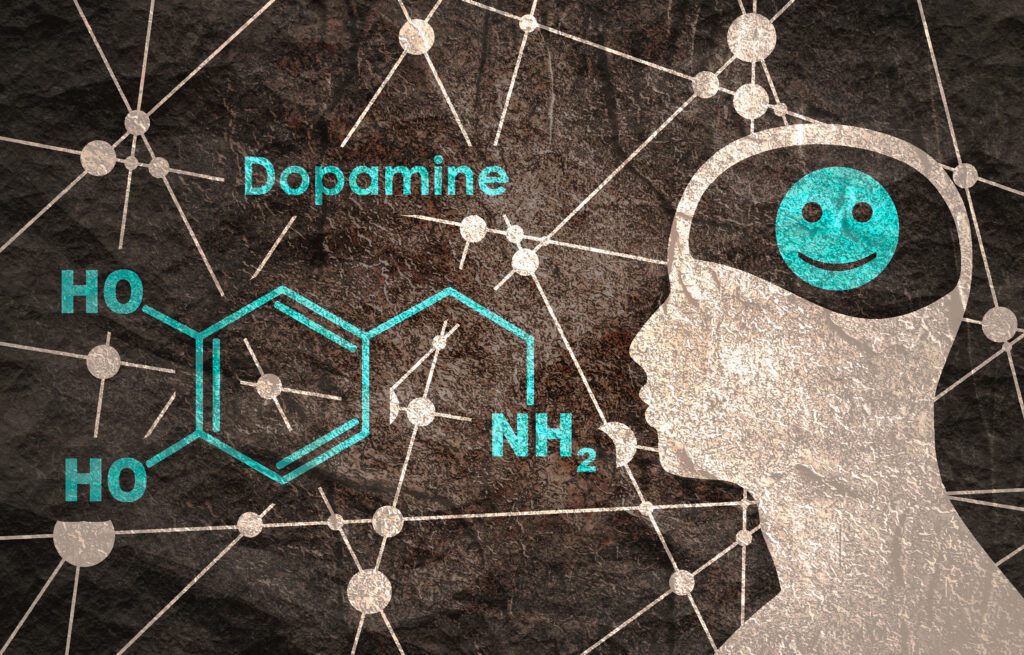
The DBH gene codes for making the enzyme dopamine beta-hydroxylase, which converts dopamine into epinephrine. Variants in this gene can affect dopamine levels based upon conversion ability.
Many people are not aware that histamine is considered an excitatory neurotransmitter (which is why antihistamines make you drowsy). A surprising number of people have issues with histamine, whether or not they have the typical ‘hay-fever’ type symptoms.
Histamine in excess of what the body is able to clear (via the ABP1 and HNMT genes, amongst a few others) can cause histamine intolerance, which can lead to anxiety, insomnia, and even issues with estrogen dominance and infertility (histamine and estrogen fuel each other).
Genetics, Hormones & Fertility
I just mentioned histamine as a factor to consider with hormonal imbalances and infertility. Inflammation and oxidative stress are major contributors to hormonal imbalance and fertility challenges, and there are many genes that can affect hormone balance and inflammation. Your genes govern how quickly you break down hormones, and there can be multiple genes involved in hormone clearance.
Genetics & Iron-Related Issues
When most people think of iron issues, they think of anemia, when really, the bigger and more common issue is iron overload. Iron is one of the most abundant minerals on earth. It is commonly found in meat and it is fortified in many of our foods.
If someone eats meat and does not have a bleeding disorder or excessively heavy periods, it is unlikely that their low iron levels are actually because the body needs more iron. It is likely a utilization issue.
Iron can get stuck in the wrong places (because of genetic predisposition and/or inflammation) in the body, building up where we don’t want it and therefore looking low in the blood. There is a whole entire pathway that must be looked at when iron-related problems are suspected. Also, vitamin A and copper are cofactors for proper iron regulation, so issues with either of these nutrients can cause iron dysregulation issues.
Genetics, MTHFR & Methylation
I almost titled my book, “MTHFR is a Gateway Gene” because MTHFR is oftentimes the first gene that people become aware of and it introduces people to the concept that genes can greatly impact our health, fertility, and longevity. I personally feel that people place entirely too much weight on that single gene. As I’ve said, no gene works in isolation.
People forget about the FOLR gene, which governs folate receptor activity. You can have no variants in MTHFR, but have FOLR variants, which will impact the amount of folate getting into your cells for use. The same thing goes for the DHFR gene, which is involved in 2 of the five steps of converting folic acid into methylfolate. Or, you could have no variants in any of these genes, but have variants in other places that intersect with the methylation pathway and it can affect your methylation ability.
Don’t Be Afraid of Knowing Your Genetics!
Some people don’t want to know what their genetics can tell them for fear of it being ‘doom and gloom,’ but it’s not bad news! It’s good news that can allow you to be proactive once you learn how to preemptively support or compensate for your genetic variants.
Our genes cannot tell us what to eat every day. But your genetic report can tell you if you have genetic predispositions to sensitivities like gluten, or excess histamine and/or oxalates. Ingesting these substances if you have a genetic propensity for a sensitivity can cause health-derailing inflammation. Steer clear of any genetic reports that merely ‘spit out’ automated dietary recommendations based solely on your genes without taking your current diet, gut health, environmental exposures, deficiencies, or sensitivities into consideration.
Why This is the Smartest Thing You Can Do For Your Health!
Your genetics remain the same your entire life, while blood, urine, and stool markers are dynamic and can change fairly quickly without much intervention. This means that your blood markers will likely be a little different when you receive your results than they were on the day you got your blood/urine/stool tested. Plus, while a blood test can give you about 30 good markers, a genetic test can give you hundreds or thousands.
You will be able to stop buying the wrong supplements or following the diet trends in hopes that something will work. This one time investment is truly invaluable because of the lifelong insight you will receive from an actual human giving your genome thoughtful and expert interpretation. You’ll know how your body uses different nutrients, which forms of nutrients will be most effective, how your body produces hormones or metabolizes neurotransmitters, and most importantly, you’ll know which antioxidants to choose and how to best support your detoxification pathways to keep chronic inflammation as low as possible.
Learn more in our next post – Genetics and Detoxification: Your genes are key to knowing what detox protocol will best suit your body.
Interested in learning about your genetic profile?
Purchase your Functional Genomics Personalized Analysis & Interpretation
Purchase the 23andMe Raw Data Interpretation
View the webinar – Deep Dive: Understanding Genetics to Build your Personalized Road to Health
Buy the book – Enhancing Fertility through Functional Medicine: Using Nutrigenomics to Solve ‘Unexplained’ Infertility
Follow me @FunctionalFertilitySolutions (Instagram) for more info like this, and feel free to contact me at Info@JaclynDowns.com!
RHT Health Foundations &
Optimization Guide
Our Top Recommendations in One Simple Guide -
Your Starting Point for Optimal Health!
- 12+ years of research and experience distilled down into one simple guide
- Easy, practical, and actionable steps you can take right away
- The most-repeated recommendations from our 100+ guest experts over the years
- Something for everyone - regardless of where you are on your health journey
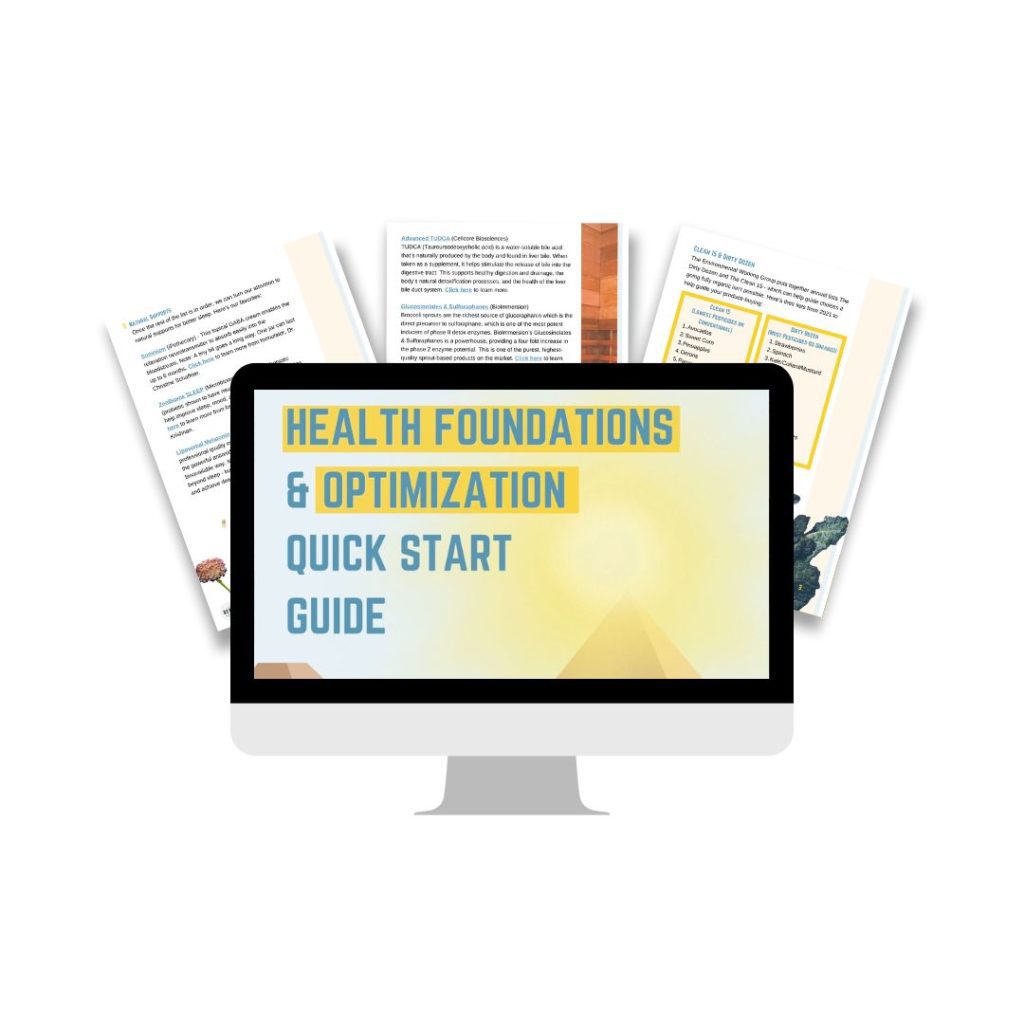
Foundations & Optimization Products
-
$49.00
-
$59.99
-
$49.00
Get Social
Recent Podcasts
Recent Courses
Toxicity & Detoxification Masterclass 2024
The toxicity and Detoxification Masterclass covers a wide array of topics with the following guests:
Brain & Nervous System Masterclass 2024
19 Leading Experts Share Cutting-Edge Science, Effective Practices, and Clinical Strategies to Optimize Brain & Nervous System Health in Kids and Adults
Autoimmune Masterclass 2024
Autoimmune Masterclass brings together 17 of the world’s leading doctors, researchers, and experts on autoimmune diseases who each present their own mini-class on autoimmunity.
Toxicity & Detoxification Masterclass
The toxicity and Detoxification Masterclass covers a wide array of topics with the following guests: 1. Lara Adler, Environmental Toxins Educator 2. Andrea Nakayama, Functional Medicine Nutritionist 3. Maya Shetreat, MD 4. Jill Carnahan, MD 5. Jaclyn Downs, Functional NutriGenomics 6. Dr. Jared Seigler 7. Eric Gordon, MD 8. Jennifer Fugo, MS, CNS 9. Dr. […]
This content is only available to members.
Get the RHT Newsletter
Be the first to get access to special offers, new podcasts, courses, products and events from Rebel Health Tribe.
MegaSporeBiotic™
MegaSporeBiotic is a probiotic blend of 5 Bacillus spores that have been shown to maintain healthy gut barrier and immune function.
Facebook
Twitter
Pinterest
LinkedIn
Reddit
WhatsApp
Telegram
StumbleUpon
Jaclyn Downs
Jaclyn is a Genetic Nutrition Consultant and Holistic Health Practitioner with a special interest (passion!) in fertility optimization. One of Jaclyn’s greatest strengths is to plainly and clearly explain complex biochemical mechanisms. She seeks to educate clients and provide them with resources so they can better understand the causes and requirements specific to their particular health needs.
View All Author Posts





